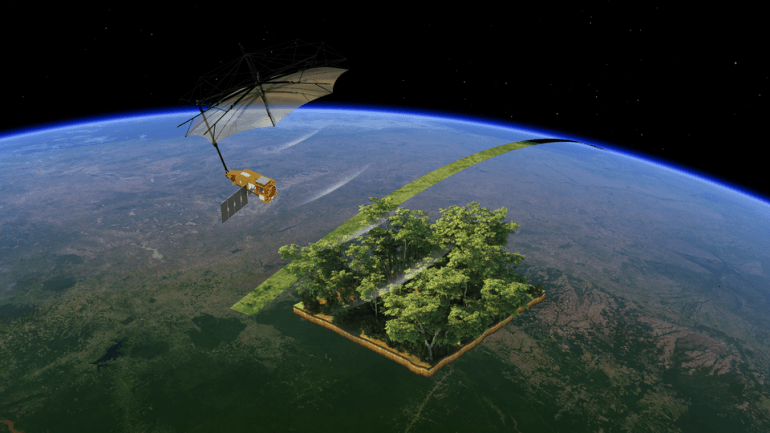

02.05.2025
The Biomass satellite, launched on April 29, 2025 by the European Space Agency (ESA), marks a decisive turning point in the observation of tropical forests and the fight against deforestation.

Thanks to unprecedented radar technology, this satellite will probe the heart of the densest forests, including those in the Congo Basin, with unprecedented precision.
Until now, the dense canopy of tropical forests has been a wall to optical sensors. Biomass innovates with a P-band radar, an extremely low frequency that penetrates the foliage and directly maps woody biomass, i.e. the quantity of carbon stored in trunks and branches.
With this satellite, ESA aims to produce global maps of forest biomass every six months for at least five years. This data will be used to monitor the evolution of forest carbon, assess deforestation and forest regeneration, and reinforce climate and forest preservation policies.
A precision tool for the tropics, and the Congo Basin in particular
The forests of the Congo Basin are among the richest in biodiversity, but also the least well mapped. The data provided by Biomass will considerably improve our knowledge of this region, by supplementing existing satellite observations (such as those from Copernicus) with direct estimates of stored carbon.
The satellite will thus enable climate models to be better calibrated, the effectiveness of conservation projects to be assessed, and the sustainable forest management efforts of governments and certified operators to be documented.
For our community, this is a strategic tool: Biomass data could ultimately support certification and traceability initiatives, as well as REDD+ commitments.
One of Biomass 's major contributions is to democratize access to data that was previously rare, costly or unreliable. By making independent, continuous measurements available, this satellite will promote transparency in forest carbon balances and help to enhance the efforts of responsible managers.
It will also pave the way for better coordination between scientific, institutional and economic players in the sustainable management of forest resources. In these times of increased pressure on forests, this is a decisive lever to support knowledge-based policies.
To find out more :